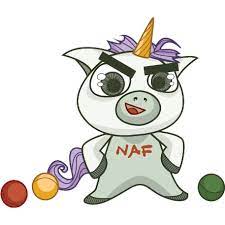Hi everyone, before we get started, it’s Black History Month, so let’s all remind ourselves that only about 2% of philanthropic dollars go to Black-led organizations. Funders, release all the statements of support you want, but increase funding and donations to Black organizations, movements, and individual leaders. Have more grants like the Washington Women’s Foundation’s Rest and Repair Awards, which provides $100,000 grants each to individual Black women leaders. The rest of us, meanwhile, should be donating to Black-led orgs, supporting Black-owned businesses, and calling our representatives and writing op-eds to protest the banning of AP African American Studies, among other actions.
Handwritten thank-you notes (HWTYN) have been a contentious topic in our sector of late. Some people think they are an absolute necessity for proper etiquette and relationship-building, while others believe they are an outdated relic of ancient times, like denim jackets and fair elections. Even Dr. Glaucomflecken weighed in. I have written about the cultural and equity implications of thank-you notes, so I won’t rehash.
But given that society is changing rapidly, we need some new rules. So forget everything you’ve been taught about thank you-notes, and instead follow these guidelines, which are in no particular order because I am not that organized:
- In general, at least in the US, it’s good to express gratitude, so try to do it from time to time. This is an excellent way to demonstrate that you are a human being, which will be increasingly vital as Artificial Intelligence takes over our world.
- Texts, emails, phone calls, videos, voicemail, or verbal expressions by themselves are sufficient demonstrations of gratitude: We must stop this elitist notion that writing, and especially handwriting, is somehow the morally superior form of communication. I mean, have you met most writers?
- Job candidates (or applicants to any program or position) are no longer obligated to write post-interview thank-you notes: Are employers writing handwritten thank-you notes to job applicants? No? Then why the hell should candidates?
- Instead of expecting job candidates to write HWTYN and punishing them for not, employers should compensate for candidates’ time spent in multiple rounds of interviews when the company was going to promote Brayden anyway.
- Always consider the equity implications of HWTYN: People may not have the time or resources to sit down and compose heartfelt letters when they’re working multiple jobs trying to survive. Need I remind you eggs are now $800 per dozen.
- It is, and this is vital, “stationery” not “stationary.” Yes, it is confusing because stationery is usually stationary. Unless your house is haunted.
- Let’s make sure we’re thoughtful about accessibility: Blind people or people with low-vision, for example, may have challenges reading or writing HWTYN. They may prefer a phone call or email that can be read by a text reader.
- Donors or funders of nonprofits are not owed a handwritten thank-you note unless they write one too: Beyond an acknowledgement for tax purposes, no donor is owed a handwritten thank-you note UNLESS they also write one to thank the nonprofit for all the work it’s doing.
…









